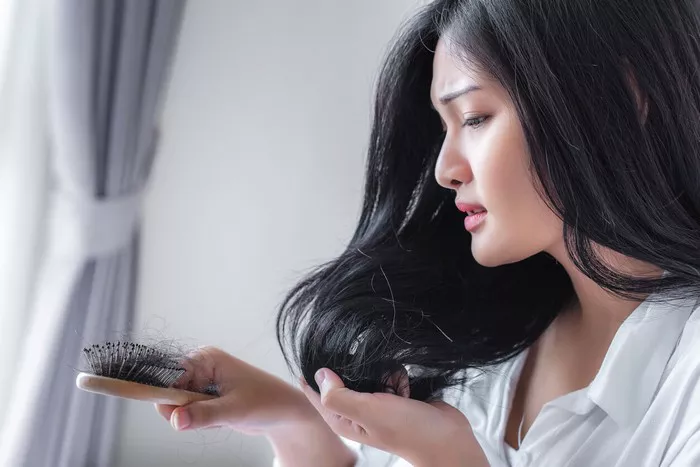Summer is a season of sunshine, beach trips, and outdoor activities. However, many people notice an alarming increase in hair fall during these warmer months. Understanding the reasons behind this seasonal shedding can help in managing and mitigating hair loss effectively. In this article, we will explore the various factors contributing to hair fall in summer and offer tips on how to maintain healthy hair throughout the season.
The Science Behind Seasonal Hair Loss
Hair Growth Cycle
To comprehend why hair fall increases in summer, it’s essential to understand the hair growth cycle. Hair grows in three phases:
Anagen Phase (Growth Phase): This phase lasts for about 2-7 years, where the hair grows actively.
Catagen Phase (Transitional Phase): Lasting for about 2-3 weeks, this phase marks the end of active hair growth.
Telogen Phase (Resting Phase): This is the shedding phase, lasting around 3 months, where hair falls out to make way for new growth.
In summer, a higher number of hairs enter the telogen phase, leading to increased shedding. This phenomenon is often linked to evolutionary biology, where the body sheds excess hair to keep cool.
Sun Exposure
One of the primary reasons for increased hair fall in summer is prolonged sun exposure. Ultraviolet (UV) rays from the sun can damage the hair shaft, leading to dry, brittle hair that breaks easily. UV rays can also affect the scalp, causing it to become dry and flaky, which can further contribute to hair fall.
Sweat and Humidity
Summer heat leads to increased sweating, which can have a detrimental effect on hair health. Sweat contains salt, which can build up on the scalp and hair, causing dryness and irritation. The combination of sweat and humidity can also lead to the growth of fungi and bacteria on the scalp, leading to conditions like dandruff and folliculitis, which can exacerbate hair fall.
Dehydration
During summer, the body’s hydration levels can drop due to excessive sweating. Dehydration affects the overall health of the body, including the hair. When the body is dehydrated, the hair follicles do not receive adequate nutrients, leading to weak and brittle hair that is more prone to falling out.
Chlorine and Salt Water
Summer activities often include swimming in pools or the ocean. Chlorine in swimming pools and salt in ocean water can strip the hair of its natural oils, leading to dryness and breakage. Frequent exposure to these elements without proper hair care can result in significant hair fall.
Preventive Measures for Summer Hair Fall
Protecting Hair from Sun Damage
Wear Hats and Scarves: Covering your hair with a hat or scarf can protect it from direct sun exposure.
Use UV Protection Products: There are hair care products available with UV protection. Using these can help shield your hair from harmful UV rays.
Maintaining Scalp Hygiene
Regular Washing: Wash your hair regularly to remove sweat, salt, and other residues that can build up on the scalp.
Use Mild Shampoos: Opt for mild, sulfate-free shampoos that do not strip the hair of its natural oils.
Hydration and Nutrition
Stay Hydrated: Drink plenty of water to keep your body and hair hydrated.
Balanced Diet: Ensure a balanced diet rich in vitamins and minerals that support hair health, such as vitamin E, biotin, and omega-3 fatty acids.
Hair Care Post-Swimming
Rinse Hair After Swimming: Always rinse your hair with fresh water after swimming to remove chlorine or salt.
Deep Conditioning: Use a deep conditioner or hair mask once a week to restore moisture and repair damage.
Reducing Heat Styling
Limit Use of Heat Tools: Minimize the use of hair dryers, straighteners, and curling irons, which can further dry out your hair.
See Also: How Long Does Hair Loss Last After Weight Loss Surgery?
Air Dry: Allow your hair to air dry whenever possible.
Natural Remedies to Combat Hair Fall
Aloe Vera
Aloe vera has soothing and moisturizing properties that can help reduce scalp irritation and promote healthy hair growth. Applying aloe vera gel to the scalp can help maintain scalp health and reduce hair fall.
Coconut Oil
Coconut oil is rich in fatty acids that nourish and strengthen the hair. Massaging the scalp with coconut oil can improve blood circulation, hydrate the scalp, and reduce hair fall.
Onion Juice
Onion juice is known for its high sulfur content, which can boost collagen production and promote hair growth. Applying onion juice to the scalp can strengthen hair follicles and reduce hair fall.
Green Tea
Green tea is rich in antioxidants that can promote hair growth and reduce hair fall. Rinsing your hair with green tea can help strengthen the hair and improve scalp health.
When to Seek Professional Help
While seasonal hair fall is common, excessive hair loss can be a sign of an underlying condition. If you notice significant hair thinning or bald patches, it is advisable to consult a dermatologist or a trichologist. They can help diagnose the cause of hair fall and recommend appropriate treatments.
Common Treatments for Hair Loss
Topical Treatments: Medications like minoxidil can help promote hair growth and reduce hair fall.
Oral Medications: In some cases, oral medications like finasteride may be prescribed to address hair loss.
Hair Transplant: For severe cases of hair loss, hair transplant surgery may be an option.
Conclusion
Summer hair fall is a common issue influenced by various factors such as increased sun exposure, sweat, dehydration, and exposure to chlorine and salt water. By understanding these factors and taking preventive measures, you can manage and reduce hair fall during the summer months. Remember to protect your hair from sun damage, maintain scalp hygiene, stay hydrated, and nourish your hair with the right products and natural remedies. If you experience excessive hair fall, seeking professional help can ensure you get the right treatment to maintain healthy and beautiful hair throughout the year.


